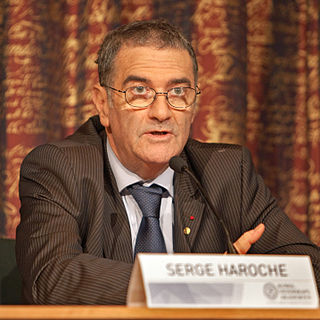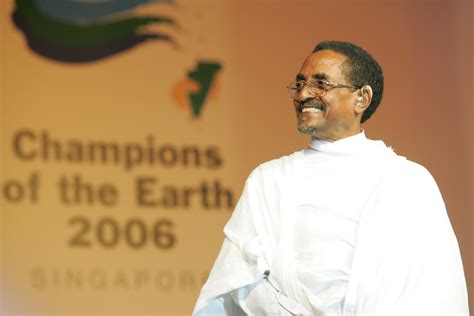A Quote by Pope John Paul II
Certain elements of today's ecological crisis reveal its moral character. First among these is the indiscriminate application of advances in science and technology. Many recent discoveries have brought undeniable benefits to humanity. Indeed, they demonstrate the nobility of the human vocation to participate responsibly in God's creative action in the world. Unfortunately, it is now clear that the application of these discoveries in the fields of industry and agriculture have produced harmful long-term effects.
Quote Topics
Action
Advances
Advances In Science
Agriculture
Among
Application
Benefits
Brought
Certain
Character
Clear
Creative
Crisis
Demonstrate
Discoveries
Ecological
Ecological Crisis
Effects
Elements
Fields
First
God
Harmful
Human
Humanity
Indeed
Industry
Long
Long-Term
Many
Moral
Moral Character
Nobility
Now
Participate
Produced
Recent
Responsibly
Reveal
Science
Science And Technology
Technology
Term
Today
Undeniable
Unfortunately
Vocation
World
Related Quotes
Discoveries are always accidental; and the great use of science is by investigating the nature of the effects produced by any process or contrivance, and of the causes by which they are brought about, to explain the operation and determine the precise value of every new invention. This fixes as it were the latitude and longitude of each discovery, and enables us to place it in that part of the map of human knowledge which it ought to occupy. It likewise enables us to use it in taking bearings and distances, and in shaping our course when we go in search of new discoveries.
Today, nothing is unusual about a scientific discovery's being followed soon after by a technical application: The discovery of electrons led to electronics; fission led to nuclear energy. But before the 1880's, science played almost no role in the advances of technology. For example, James Watt developed the first efficient steam engine long before science established the equivalence between mechanical heat and energy.
The Nuffield report suggests that there is a moral imperative for investment into GM crop research in developing countries. But the moral imperative is in fact the opposite. The policy of drawing of funds away from low-cost sustainable agriculture research, towards hi-tech, exclusive, expensive and unsafe technology is itself ethically questionable. There is a strong moral argument that the funding of GM technology in agriculture is harming the long-term sustainability of agriculture in the developing world.
Ah, I fancy it is just the same with most of what you call your emancipation. You have read yourself into a number of new ideas and opinions. You have got a sort of smattering of recent discoveries in various fields - discoveries that seem to overthrow certain principles which have hitherto been held impregnable and unassailable. But all this has only been a matter of intellect, Miss West - superficial acquisition. It has not passed into your blood.
America has had the best university system in the world for a long time. And so we have been innovators, not only in the discoveries as proven by Nobel Prizes in chemistry and physics and that sort of thing, but we've been able to put that into practical application with new gadgets that people admire.
The life and soul of science is its practical application, and just as the great advances in mathematics have been made through the desire of discovering the solution of problems which were of a highly practical kind in mathematical science, so in physical science many of the greatest advances that have been made from the beginning of the world to the present time have been made in the earnest desire to turn the knowledge of the properties of matter to some purpose useful to mankind.
Taking a look back, one big reqret is, I left Harvard with no real awareness of the awful inequities in the world. The appalling disparities of health and wealth and opportunity that condemned millions of people to the lives of despair. I learned a lot here at Harvard about new ideas and economics, and politics. I got great exposure to the advances being made in the sciences. But humanities greatest advances are not in its discoveries, but in how those discoveries are applied to reduce inequity.
Decisive inventions and discoveries always are initiated by an intellectual or moral stimulus as their actual motivating force, but, usually, the final impetus to human action is given by material impulses ... merchants stood as a driving force behind the heroes of the age of discovery; this first heroic impulse to conquer the world emanated from very mortal forces
Science is a human activity, and the best way to understand it is to understand the individual human beings who practise it. Science is an art form and not a philosophical method. The great advances in science usually result from new tools rather than from new doctrines. ... Every time we introduce a new tool, it always leads to new and unexpected discoveries, because Nature's imagination is richer than ours.








































